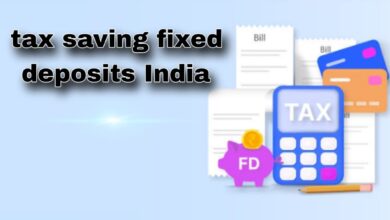Property Tax Benefits for Senior Citizens in India: A Complete Guide

As India’s elderly population grows, ensuring financial stability and dignity for senior citizens becomes increasingly important. One of the ways the government supports this demographic is through tax relief and other incentives. Among these, property tax benefits for senior citizens in India are particularly noteworthy.
This guide delves into how senior citizens can take advantage of property tax benefits, reduce their financial burden, and make the most of the exemptions and rebates available to them.
Who Qualifies as a Senior Citizen in India?
Before diving into the benefits, it is important to define who qualifies as a senior citizen for tax purposes in India.
- Senior Citizen: A resident individual aged 60 years or above but below 80 years.
- Super Senior Citizen: A resident individual aged 80 years or above.
This classification plays a key role in determining eligibility for various tax benefits, including those related to property.
Understanding Property Tax in India
Property tax is a local tax imposed by municipal authorities on property owners. The tax amount is usually based on factors such as:
- The location of the property
- Its size and built-up area
- Property type (residential/commercial)
- Usage (self-occupied/rented)
- Property age and amenities
Each state and municipality may have its own rules, rates, and rebate policies, especially concerning senior citizens.
Key Property Tax Benefits for Senior Citizens in India
Several municipalities and state governments across India offer specific property tax rebates or exemptions for senior citizens. Below are some of the most prominent benefits.
1. Rebates on Property Tax Rates
Many city municipal corporations provide rebates ranging from 10% to 50% on the total property tax payable by senior citizens.
Examples:
- Delhi: The Municipal Corporation of Delhi (MCD) offers a 30% rebate on property tax for senior citizens on self-occupied residential properties.
- Mumbai: The Brihanmumbai Municipal Corporation (BMC) offers concessions of up to 50% for senior citizens residing in their own homes.
- Bangalore: The Bruhat Bengaluru Mahanagara Palike (BBMP) gives a 50% rebate on property tax for senior citizens owning properties less than 1,000 sq ft.
💡 Note: These rebates are often applicable only to self-occupied residential properties and not to rented or commercial properties.
2. Ease in Documentation and Compliance
Senior citizens are often allowed simplified paperwork and priority service when filing property tax returns. This helps reduce the complexity and stress often associated with municipal compliance.
3. Waivers or Deferment Options in Special Cases
In certain states, under compassionate grounds or special schemes, senior citizens with no regular income may be allowed to defer property tax payments or receive partial waivers.
These waivers are usually considered on a case-by-case basis and require submission of documents proving financial hardship.
4. Discounts on Online Payment of Property Tax
Several municipal websites offer additional discounts for online payment of property taxes, including for senior citizens. This is not exclusive to seniors but is an easy way for tech-savvy elderly citizens to save more.
Eligibility Conditions for Availing Property Tax Benefits
While property tax rebates for senior citizens are widely available, they come with certain eligibility conditions, which may vary by location. Typically, the following are required:
- The property must be owned in the name of the senior citizen.
- The property must be self-occupied.
- Only one property per person may qualify for the rebate.
- Submission of age proof (Aadhaar Card, PAN Card, Voter ID, etc.)
- Sometimes, income-related documentation may be required.
How to Claim Property Tax Benefits
To avail of these benefits, senior citizens must follow these general steps:
1. Visit the Local Municipal Office or Website
Start by checking your local municipal corporation’s website or office for specific rules applicable in your area. Some popular portals include:
- MCD Property Tax Portal – Delhi
- BBMP Property Tax – Bangalore
- BMC Online Services – Mumbai
2. Register and Fill Property Tax Details
Enter the necessary property details such as Property Identification Number (PID), zone classification, and built-up area.
3. Submit Senior Citizen Proof
Upload or submit a scanned copy of documents proving your age and ownership of the property.
4. Check for Applicable Rebate
Before final submission, ensure that the rebate for senior citizens is visible in the payable amount.
5. Make Payment and Keep Receipt
Make the payment and save the receipt for future reference or audit purposes.
Benefits Beyond Property Tax
While property tax rebates are helpful, senior citizens in India also enjoy several other tax benefits:
1. Income Tax Exemptions
- Higher exemption limits (₹3 lakh for senior citizens and ₹5 lakh for super senior citizens).
- Exemption on interest income from savings accounts and FDs under Section 80TTB (up to ₹50,000).
2. Capital Gains Tax Relief
- Exemption on reinvestment of long-term capital gains in certain bonds (Section 54EC).
3. Reverse Mortgage Facility
- Senior citizens can use reverse mortgage schemes to generate regular income from their residential property without selling it.
Challenges Faced by Senior Citizens
Despite the benefits, there are challenges senior citizens face when dealing with property taxes:
- Lack of awareness about available benefits
- Complex online portals and tech barriers
- Inconsistent policies across cities and municipalities
- Bureaucratic delays in processing rebates
It is essential for governments and municipalities to simplify the process and actively educate senior citizens about their rights and benefits.
Tips for Senior Citizens to Maximize Tax Savings
- Claim all available rebates: Double-check eligibility across municipal and income tax platforms.
- Plan property ownership wisely: Ensure the property is in the name of the senior citizen to claim rebates.
- Maintain digital records: Save receipts and acknowledgment of rebates for easy reference.
- Stay updated: Rules may change annually—check local municipality websites before filing.
- Seek professional help: Consult tax experts if unsure about documentation or eligibility.
Final Thoughts
Property tax benefits for senior citizens in India serve as a much-needed financial cushion for retirees and the elderly. By reducing the burden of recurring annual taxes, these rebates help promote independent living and financial dignity.
However, accessing these benefits requires awareness, proper documentation, and sometimes a bit of persistence. If you’re a senior citizen—or assisting one—make sure to take advantage of these provisions.
Every rupee saved through these rebates can make a real difference in maintaining a secure and comfortable lifestyle in the golden years.


